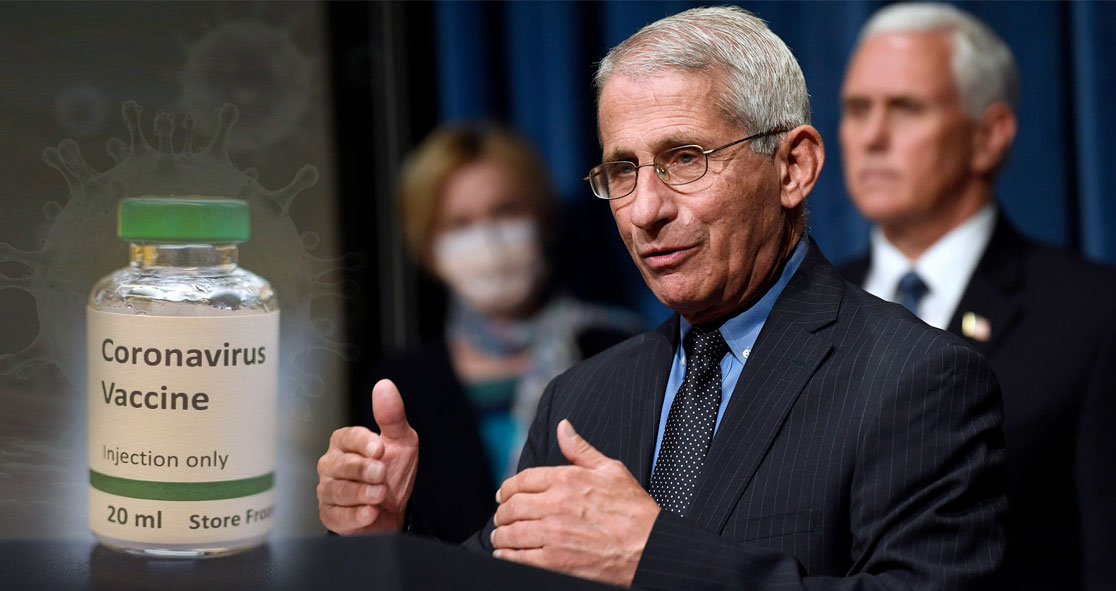People are eagerly waiting for a potentially safe and effective COVID-19 vaccine to get the much-needed immunity against the novel coronavirus.
Experts and drug manufacturers are leaving no stone unturned in developing COVID-19 vaccines, but the question remains: when are we going to get a vaccine that is safe as well as effective.
Dr. Anthony Fauci, the nation’s top infectious disease expert, has recently said that the early coronavirus vaccine will prevent the symptoms of the infection rather than killing the virus itself.
On Monday, during the Yahoo Finance All Markets Summit, Dr. Fauci said, “The primary thing you want to do is that if people get infected, prevent them from getting sick, and if you prevent them from getting sick, you will ultimately prevent them from getting seriously ill.”
He explained that preventing symptoms is a “primary endpoint” in the vaccine development process, and getting rid of the virus altogether is considered a “secondary endpoint.”
Dr. Fauci, who is the head of the National Institute for Allergy and Infectious Diseases (NIAID), said, “What I would settle for, and all of my colleagues would settle for, is the primary endpoint to prevent clinically recognizable disease. And that’s what we hope happens, and if we do, that will go a long way to diffusing this very difficult crisis that we’re in.”
The virus would pose a lower threat as a pandemic with reduced severe symptoms. Then researchers can develop a solution that would help reach the full goal of preventing early COVID-19 infection.
In the United States, several vaccine candidates are in their Phase III (late-stage) clinical trials. Their safety and efficacy data is expected to be ready by the end of this year.
If found safe and effective, the initial doses will be given to frontline health workers by the end of 2020 or at the beginning of 2021. It could also pave the way for widespread distribution in 2021.
Dr. Fauci said it is imperative to follow mitigation strategies to prevent the spread of the virus, such as wearing facemasks, maintaining social distancing, and avoiding large crowds. “Adhering to public health measures now is going to make it easier and more quickly get to where we want to go, which is approaching some form of normality,” the NIAID director added.























